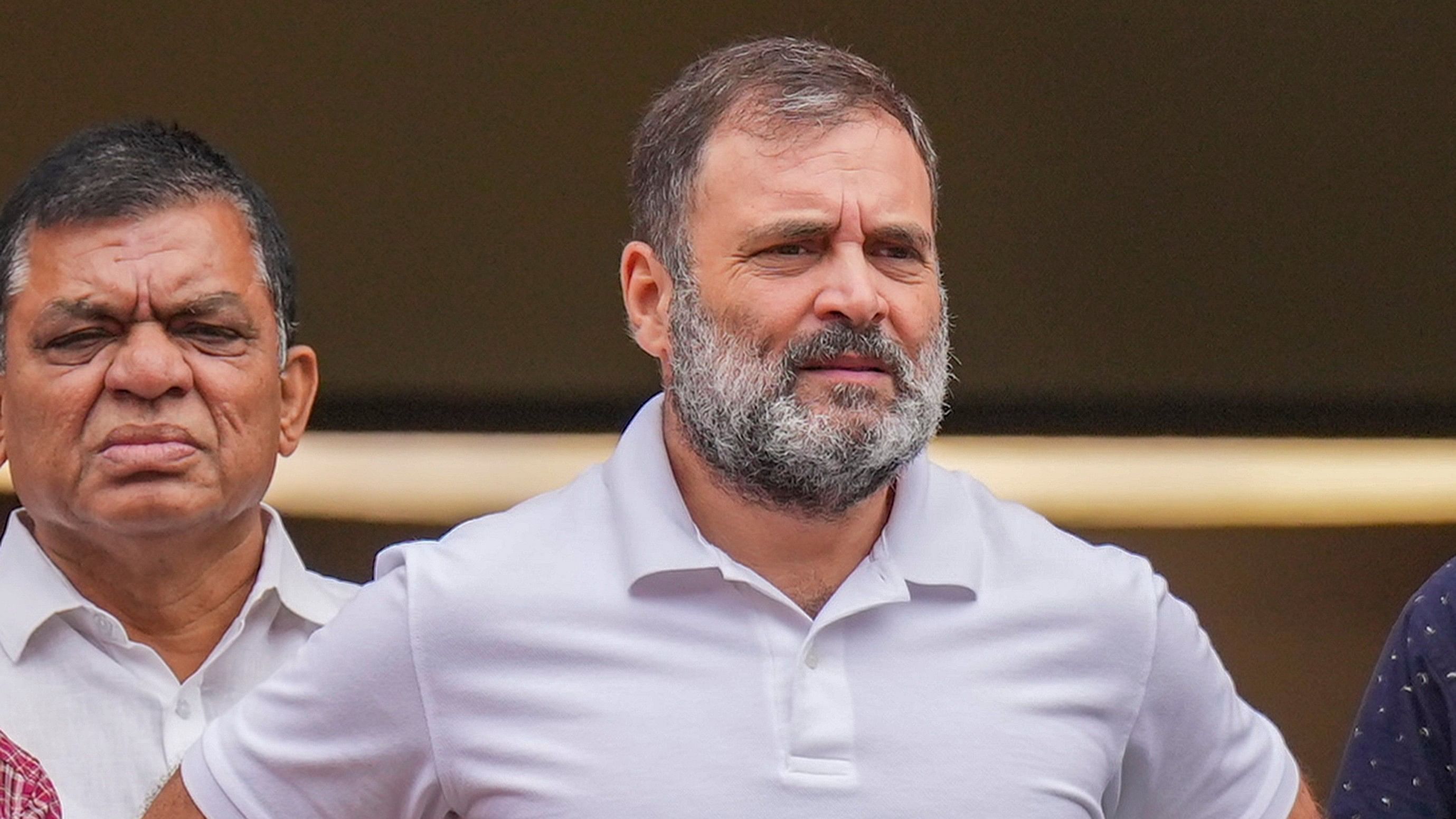
Rahul Gandhi
Credit: PTI File Photo
Congress leader Rahul Gandhi, during his election campaign and in his debut speech as the Leader of Opposition in the Lok Sabha, often used the phrase daro mat (don’t fear), adding a new idiom to Indian democracy. Undoubtedly a political slogan, it has attracted both criticism and appreciation and significantly impacted Indian democracy, which has been reeling under anxieties over the past couple of years. These anxieties have grown out of the inequality of conditions, both structural, social, and political. The work of De Tocqueville will help one understand the Indian situation.
One of the most prominent French theorists and philosophers of the eighteenth century, De Tocqueville, was once hired to investigate how American democracy operated while France was beginning to recover from the chaos of the revolution. In his book Democracy in America, he notes that the United States began its journey with equal conditions for its people, which enabled them to establish and occupy various spheres of power, such as the federal system, two houses of representation, a two-party system, an independent and autonomous judiciary, and the shortest constitution. Even though equality of conditions has made the US a powerful country, it has not been able to address some of the underlying issues, such as inadequate representation, a declining standard of living, ghettoisation, and insufficient means of subsistence for people of colour, indigenous people, and ethnic minorities. A small number of powerful families and large corporations in the banking, finance, and multinational sectors currently rule the US. Their control is mediated through lobbying, involvement in policymaking, campaign donations, and appointing their personnel in key government positions. In other words, this has caused a paradigm shift from equality of conditions to inequality of conditions, leading many to criticise the US as a “failed democracy.” However, this highlights that even highly developed countries are not free from anxieties, given that such anxieties are the by-product of the unequal distribution of power relations in the name of equality of conditions.
A few questions can be raised as to how India has traversed its journey over the years. What anxieties did the Indian democracy face? Did these anxieties reduce the tension between the contending groups, etc.?
Indian democracy set out on a path towards equality of conditions after first eschewing the unequal conditions left over from colonialism. This early success in transforming inequality into equality became a significant milestone in its history.
Many political institutions were created or introduced to promote equality of conditions, including radical reforms like affirmative action, land reforms, and the green revolution. It is a fact that the project would not have taken off without an ideology. The state used socialist ideology to push its project. However, it ended up, as Gayatri Spivak Chakraborty, a well-known post-colonial subaltern theorist, argues in Chaarana Socialism (four-anna), where socialism and the capitalist path of development co-existed without destroying each other. This is reflected in how globalisation or liberalisation, on the one hand, and the Food Security Act, the Forest Dwellers Act, and the Bhagya schemes, on the other, operate. It has increased the tension between the dominant ideology of liberalism and weak socialism.
The recent opposition to earmarking some posts in the private sector for the local population in Karnataka is one such instance of building tension. The corporate sector opposed the move, believing it would affect its overall functioning and productivity. Earlier, they also opposed the reservation in the private sector on grounds of efficiency, talent, and merit. It is not simply a matter of merit versus corporate industry but a matter of defeating equality of conditions for the local and linguistically regional to enter the private sector. Similarly, outside the private sector, the opposition to the release of caste census reports, the opposition to conducting the caste censuses, etc., all reflect the attempt to prevent equality of conditions. In this politics, the anxiety of Indian democracy has shifted to reduce the tension between the contending groups, although tension has been its hallmark.
Indian democracy, despite other anxieties such as distributing political resources judiciously, recognising unrecognised social categories through multiple affirmative actions, reclaiming the loss of democratic spaces in recent years, etc., stands at the crossroads of furthering the equality of conditions. Its initial success has failed to bring about a paradigm shift. With the number of billionaires increasing over time, India is attempting to be the third-largest economy in the world by 2030. However, over 80% of its population still depends on the public distribution system to survive. In this midst, the phrase daro mat will continue to be an ideal and an aspiration rather than a new idiom of democracy unless and until the barriers to inequality are eliminated.
(The writer is a former Dean of the University of Mysore)